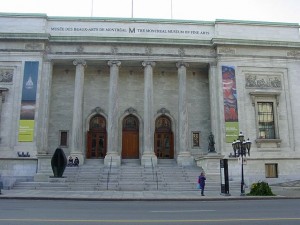
Cultural attractions like the iconic Montreal Museum of Fine Arts helped give Montreal the top spot in the ‘social experience’ sub-index of the Sea Turtle Index
An index commissioned by the Bank of Communications (BoCom), one of the largest banks in China, places Montreal, Canada as the best city in the world for international students.
Other Canadian cities that ranked well include Toronto (4th) and Vancouver (15th).
Created by the Economist Intelligence Unit (EIU) with design input from BoCom management, the Sea Turtle Index (a name referring to Chinese students who study abroad only to return, like sea turtles, to their country of origin) ranks foreign student destinations according to five sub-indices:
- Educational returns: the international value of the education provided in the city relative to its cost
- Financial returns: the openness of the investment environment to foreign nationals and the amount of volatility risk that could effect investment returns
- Real estate returns: the return on investment in the local real estate market
- Work experience: the local job market for foreign students and graduates in terms of availability of jobs, wages and low-taxes
- Social experience: the city’s level of culture, worldliness and multi-culturalism
Of the 80 cities included in the index, Montreal came in 6th place in the ‘educational returns’ sub-index, behind only Cambridge (1st), Oxford (2nd), London (3rd), Seoul (4th), and Beijing (5th).
Montreal benefited from having comparatively affordable universities and cost of living while providing high quality tertiary education. Vancouver and Toronto also had their score helped by their low cost of living, although not as much as Montreal which was found to be a more affordable place to live.
None of the American cities included in the study made the top 10 in the educational returns category, despite several being home to some of the best educational institutions in the world. The poor showing was largely due to the high cost of tuition for their undergraduate programs.
Some cities, including Singapore, Hong Kong and New York, saw their educational returns ranking pushed down due to a high cost of living.
The EIU included a ‘financial returns’ sub-index owing to the fact that the parents of international students and often international students themselves like to make investments in the city where the students live.
None of the North American cities included in the study made the top 30 in this sub-index, due in Canada to relatively high taxes and in the United States to excessive “money laundering regulations and terrorism legislation” stifling financial freedom.
Hong Kong placed first in this ranking, followed by Auckland, New Zealand (2nd) and Santiago, Chile (3rd), which benefited from having comparatively few regulations on finance and banking that restrict international capital flows.
Three Canadian cities made the top 30 in the ‘real-estate returns’ sub-index: Toronto (4th), Montreal (12th), and Vancouver (13th), while Hong Kong took the top spot thanks to its hot real estate market.
Canadian cities did well due to a combination of well-performing real-estate markets and avoidance of the boom-busts that affected many other world cities in the period leading up to and following the global mortgage crisis.
Canada’s openness to foreign investment also helped push its cities above those in countries with real-estate markets that have seen substantial gains in recent years but which have more restrictions on foreign property ownership, like Shanghai, Bangkok, Mumbai and Seoul.
Immigration rules benefit Canada
Canadian cities took the top five spots in the work experience sub-index due to immigration laws that allow foreign students, upon completion of their study programs, to obtain post-graduate work permits that are valid for durations equaling the length of their study in Canada.
This contrasts with the U.S. where international students have few options to stay and work in the United States upon completing their studies.
Edmonton’s combination of a hot labour market and low provincial taxes gave it an edge over its Canadian counterparts and earned it the top spot in the ranking, followed by Hamilton (2nd), Toronto (3rd), Vancouver (4th) and Montreal (5th).
Montreal managed to also share the top spot in the ‘social experience’ sub-index with London, England, thanks to its low rates of violent crime, high cultural diversity and its world renowned cultural attractions.
Canada’s high levels of multiculturalism and low crime rates helped three other Canadian cities: Toronto, Vancouver and Edmonton, make the top 30 in this ranking.
As incomes in China rapidly grow, parents in the country’s large and education-minded population are increasingly able to afford a foreign university education for their children.
Therefore the good showing of Canadian cities in the Sea Turtle Index, which caters mostly to Chinese students seeking to study abroad, portends well for Canadian efforts to make the country a top destination for international students.
With the federal government having committed itself to making it easier for international students to stay and work in Canada and become permanent residents through programs like the Canadian Experience Class, Canada’s appeal to international students could increase even more in coming years.
 On March 28 2018, Quebec has announced significant changes to the Quebec immigration program.
On March 28 2018, Quebec has announced significant changes to the Quebec immigration program.




